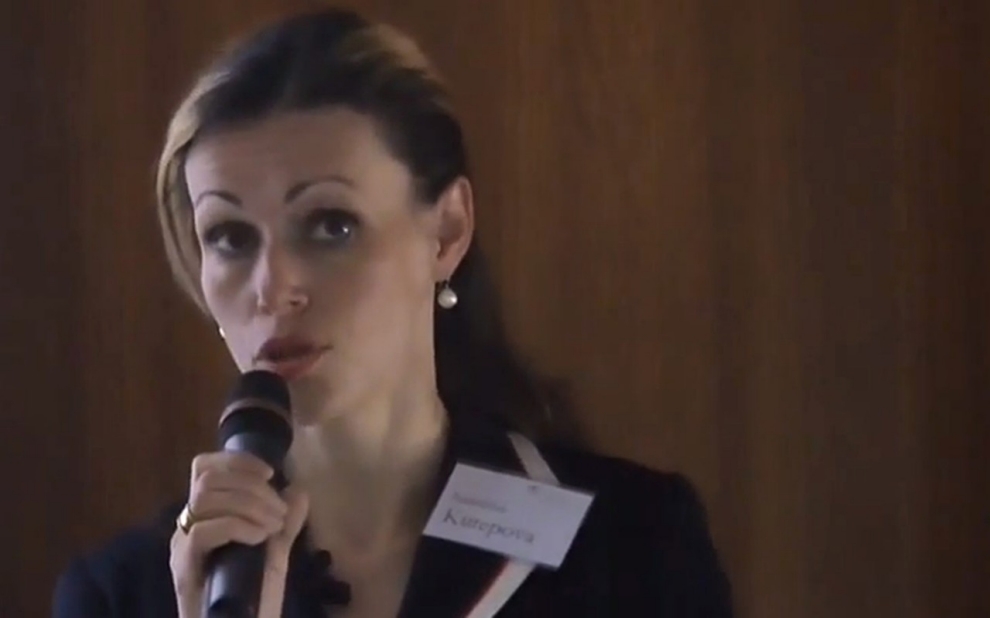A Russian environmental NGO targeted by Moscow’s foreign agent law and dogged by treason charges against its leader, is pushing a slander suit again a state broadcaster for saying it engaged in espionage, the non-profit’s former leader, Nadezhda Kutepova, told Bellona from Paris Wednesday.
A Russian environmental NGO targeted by Moscow’s foreign agent law and dogged by treason charges against its leader, is pushing a slander suit again a state broadcaster for saying it engaged in espionage, the non-profit’s former leader, Nadezhda Kutepova, told Bellona from Paris Wednesday.
Planet of Hopes, which sought redress for victims of radioactive contamination from Russia’s notorious Mayak Chemical Combine, and home to the Soviet A-bomb, was accused by Rossiya-1’s government controlled news personality Olga Skabeyeva of US-sponsored corporate espionage on two of the station’s programs.
In both, the first of which aired on Rossiya-1’s flagship news program Vesti on May 27, and the second on June 1, during the news magazine Special Correspondent, Skabeyeva said Planet of Hopes “is engaged in corporate espionage on funding from NED [the US National Endowment for Democracy],” the RBK independent Russian newswire quoted court documents as saying.
 Olga Skabeyeva, anchor of Rossiya-1's state news broadcast Vesti, (Photo: Rossiya-1)
Olga Skabeyeva, anchor of Rossiya-1's state news broadcast Vesti, (Photo: Rossiya-1)
Planet of Hopes is demanding an on air retraction during both programs on which Skabeyava leveled her accusations, and renowned human rights lawyer Ivan Pavlov is seeking reimbursement of court expenses for his legal advocacy group, Team 29.
Kutepova told Bellona she’s also filed a similar case in the European Court of Human Rights in Strasbourg, France.
“This is a very important case,” Kutepova told Bellona via instant messaging. “The foreign agent label automatically implies espionage.”
Planet of Hopes was forced on the Russian Justice Ministry’s foreign agent list – of which there are currently 121 – in April 2015 for receiving a $44,188 NED grant in 2008, four years before the 2012 NGO law even took effect. Facing crushing organizational and personal fines, Kutepova subsequently liquidated the group.
Because Planet of Hopes operated in the closed nuclear city of Ozersk, Alexander Nikitin, Chairman of the Environmental Rights Center Bellona, said Kutepova was under the security services’ bell jar.
That made the looming allegations of espionage against the group aired by a powerful state broadcaster credible enough for 43-year-old Kutepova to leave Russia with her three children on Pavlov’s advice and seek asylum in Paris, where they now live.
Later developments proved she wasn’t just being skittish.
A June effort in court aimed at reducing the fines Planet of Hopes was facing was scuttled by the Justice Ministry’s conclusion that the group’s activities were a threat to Russian national security, Kutepova said.
“This is the very definition of treason,” she said. It prompted her to write Justice Ministry prosecutors asking them to substantiate the group’s treasonous activities.
 A reflection of Mayak's abandoned caisson plant on the river Techa.
Credit: Courtesy of Denis Sinyakov/echo.msk.ru
A reflection of Mayak's abandoned caisson plant on the river Techa.
Credit: Courtesy of Denis Sinyakov/echo.msk.ru
She said an investigation to ferret out acts of espionage came up, unsurprisingly, with enough to charge her with spying.
“This decision entered into force after I’d already moved to Paris,” where she received political asylum, she said. “If I’d have been in Russia, I’d have been locked up for treason.”
If the suit against the broadcaster and Skabeyeva is successful, Kutepova says she’s hopeful her group can resume its work shedding light on continued radioactive contamination of area residents, rivers, lakes, land and the plight of those suffering from Mayak’s accidents and waste dumping policies, which often run afoul of Russian law. She’s also fought to have residents of villages bearing the brunt of Mayak’s pollution relocated.
But she said she won’t be moving back to Russia to join her colleagues, as the conclusion of the treason investigation still stand.
Instead, she says she’s in close correspondence with prosecutors in Moscow, where the slander case is being heard, helping them compile a criminal case against Skabeyava for her on-air remarks.
In a criminal case, were Skabeyava found to have had malicious intent based on trumped up information, she could face heavy fines and jail.
During several calls to the newsroom of Rossiya-1, Bellona was told Skabeyeva was unavailable for comment or not at work. Management also refused to comment on the case or the veracity of the Vesti and Special Correspondent segments.
Kutepova said that even just winning the current slander case would be victory enough.
‘This effects the whole NGO community in Russia,” she said. “If we win, the government and its engaged journalists will thing 25 times before they call anyone a spy.”






